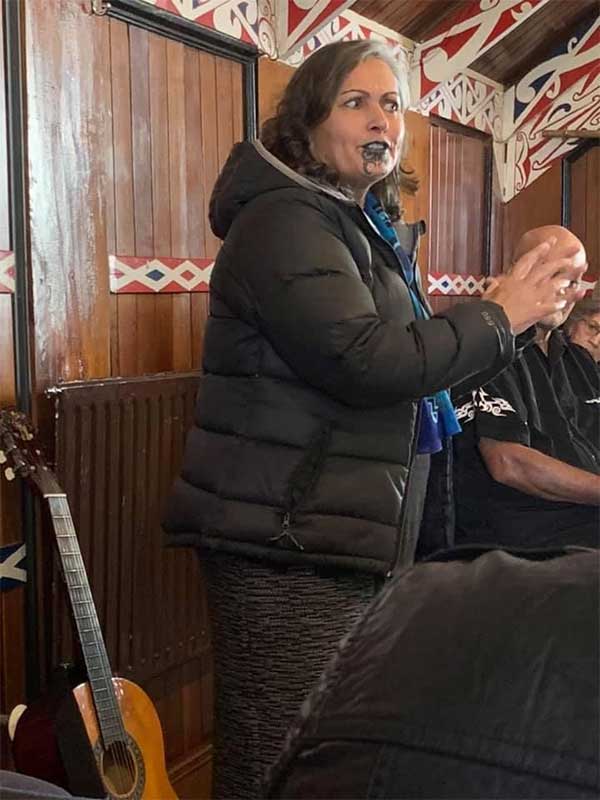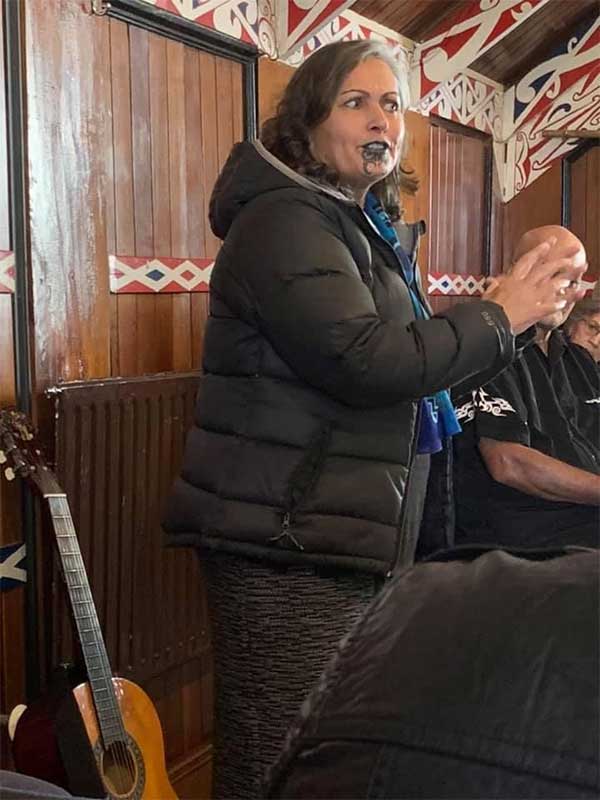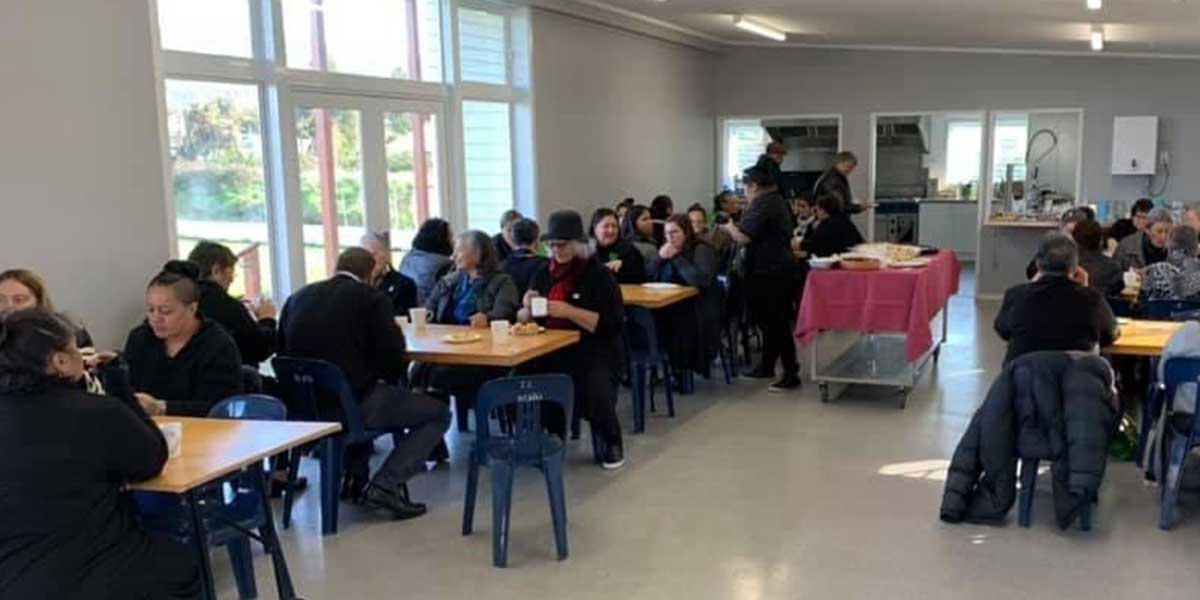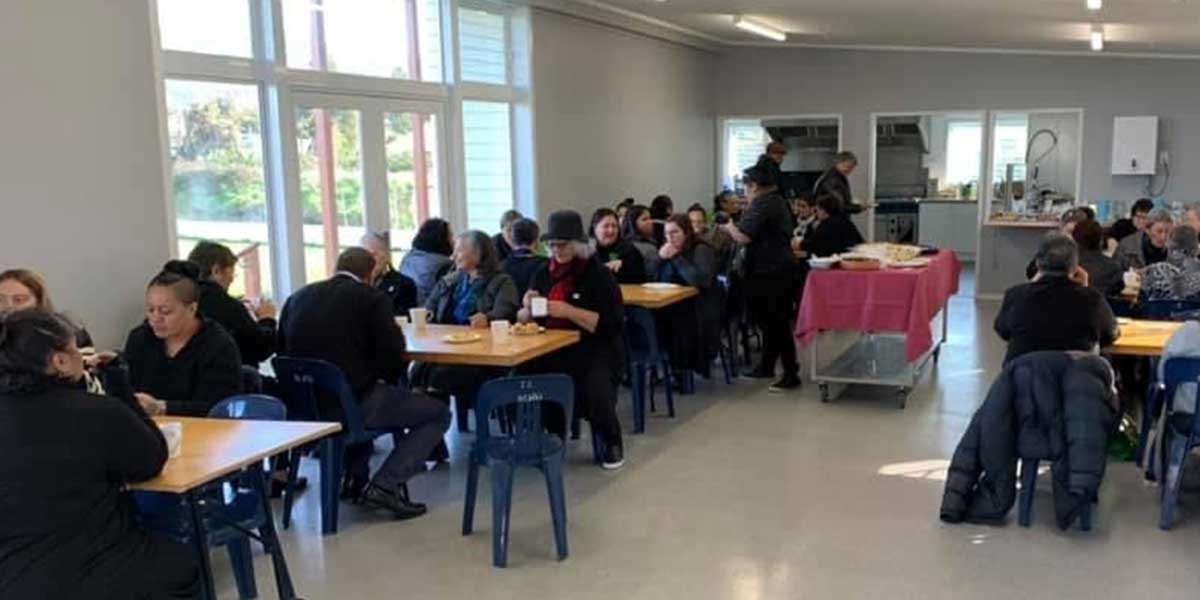
More than just a boil up – helping new māmā and pāpā connect

08 June 2022
Family Start Rotorua's Mahuri Matai parenting programme takes place most weeks at a local marae. It's an opportunity for local whānau to connect with their tīpuna and learn more about Māori values, like manaakitanga and tikanga.
A bowl of boil up is always a crowd pleaser, but for new māmā and pāpā in Rotorua, it's the perfect way to connect with their tīpuna .
For almost two years, Family Start Rotorua's Mahuri Matai programme has been bringing new parents together to meet, share food, and learn more about mātauranga and te ao Māori approaches to parenting.
The programme takes place most weeks* at Te Roro o te Rangi marae. The three-hour catch-ups are informal and welcoming. The topics change weekly, but always revolve around te ao Māori values, like manaakitanga and tikanga .
We went through a period where we had 4 or 5 dads coming and so we had people talking about the role of the tāne, what does it mean to be the man, the provider and the hunter-gather.
Rachael Bell, Family Start Manager
In between the discussions, there's space for kai and other activities. Often they learn how to make kai, like paraoa parai (fry bread) or a boil up.
Activities – like weaving – teach a new skill, but also link back to mātauranga Māori and traditional parenting practices, like using wahakura for a safe sleeping space.
Nurturing māmā and pāpā
Mahuri Matai differs from most parenting courses in that the focus is on supporting māmā and pāpā, as opposed to just skills for raising pēpi.
"On some levels there's probably a very fine distinction, but I think in other spaces it's quite significant," says Rachael.
"A lot of the time when we go to parenting courses it's about what they should be doing for the wellbeing of their child, but at Mahuri Matai the focus is on who are they as parents, not just how to parent."
It's based on the concept that if the parents are well looked-after, pēpi will be too.
One big whānau
Creating an inclusive and non-judgmental space where it's "ok to be who you are right now", is hugely important to the team, says Rachael.
Many people who attend the programme haven't grown-up on a marae. For them, just being there takes courage.
"Some people feel they should know the language or the values and they don't – but that's OK."
"We talk to people about how to create their pepeha ... that sense of identity is really important in terms of creating stable parenting – knowing who you are, knowing who you connect to."
"It's a very warm whānau feeling, it's about being part of something and I think that is quite special," says Rachael.
*The programme has been on hold due to uncertainties around COVID, but is set to resume at the end of July, at the beginning of Term 3.















